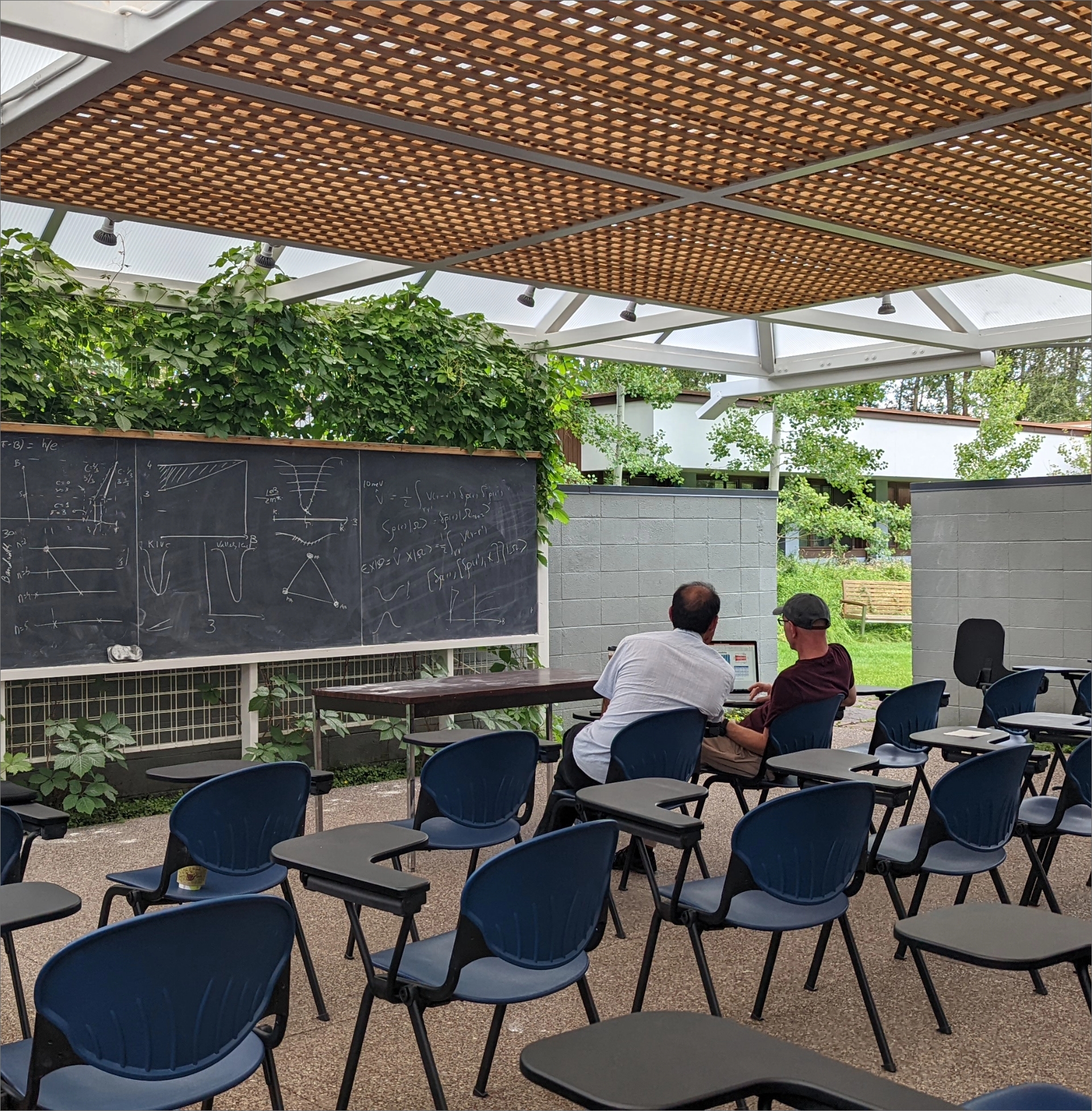
Summer Program
Stellar Interactions and the Transients They Cause
July 9–30, 2023
Organizers:
Orsola De Marco, Macquarie University
Natalia Ivanova, University of Alberta
Ilya Mandel, Monash University
Enrico Ramirez-Ruiz, University of California Santa Cruz
A large fraction of stars are found in binaries (and higher multiplicity systems) that interact over the course of their evolution. Mass transfer plays a key role in understanding phenomena as diverse as supernovae, X-ray binaries, gamma ray bursts, kilonovae, tidal disruption events, novae, intermediate luminosity optical transients, and gravitational-wave mergers. With rapidly growing data sets, significant theoretical advances, and the exciting developments of new surveys, now is an opportune time to bring together observers and modelers. We will discuss, among other topics, the observational constraints and theoretical models of mass transfer; binary mergers and their signatures; nebulae as the aftermath of mass-transfer events; supernovae with signatures of binary interaction; X-ray binaries and gravitational-wave sources; spins in stars and compact objects; tidal disruption events; and population-wide models and observational comparisons.
Summer Workshops
The summer program, running for 16 weeks from late-May to mid-September, emphasizes exciting open problems at the cutting edge. Two or three concurrent workshops, each with a specific focus selected for timeliness and the potential for breakthroughs and of two to five weeks in length, establish the main themes of each week, with twelve or thirteen different workshops each summer, balanced across fields including particle physics, string theory, astrophysics and hard and soft condensed matter physics, as well as emerging areas including biological physics, ultra-cold atom physics, quantum information, and physical mathematics. Additional researchers participate in small working groups or as individual researchers. This framework is designed to maximize informal interactions and free discussion within each area and to promote cross-fertilization between different areas via the common language of theoretical physics. Participation in the summer program of the Aspen Center for Physics is by application and subsequent invitation only. View past workshops.
